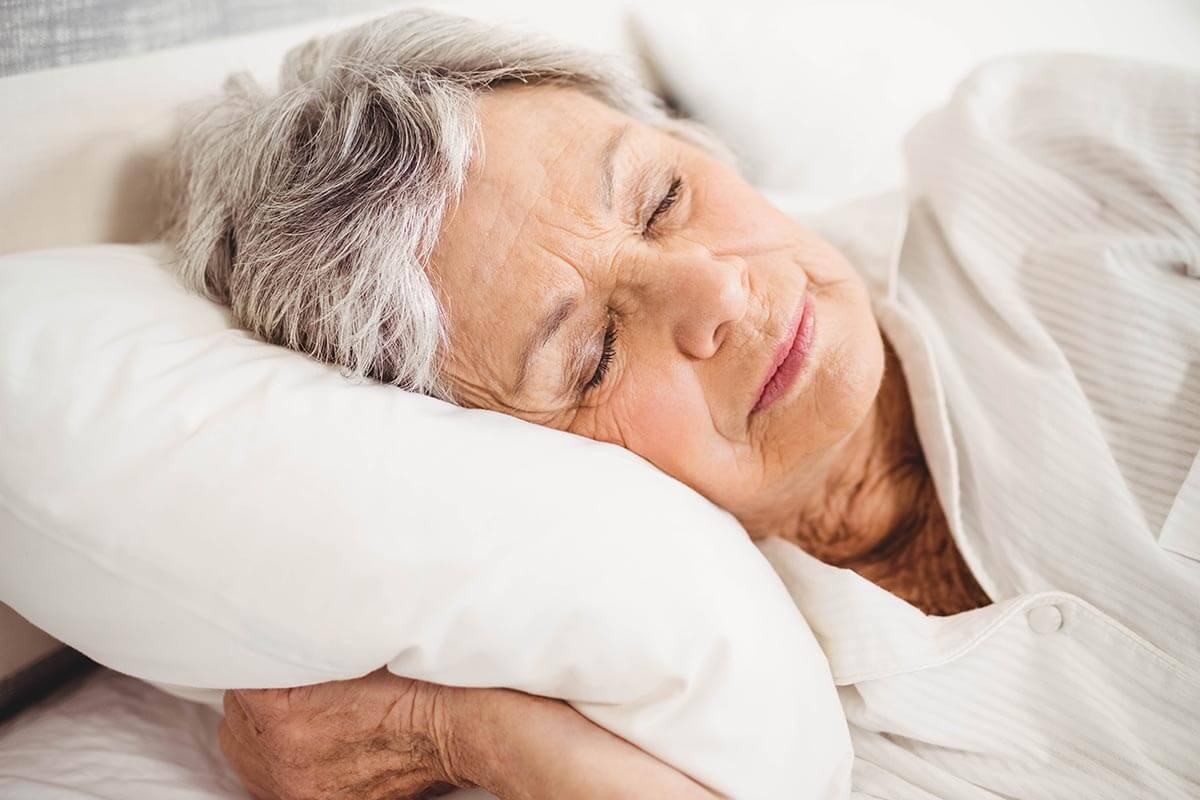As simple as it may sound, something a lot of working-age people look forward to in their retirement is the ability to sleep in.
During our lives as full-time workers and parents, quality sleep is as precious a commodity as a quiet house. We get up in the middle of the night to feed babies, we bring work home from the office with us and stay up late to finish it, we rise early to take our kids to before-school activities and early-morning athletic practices and competitions.
It might have ruined his army’s chances against Sam Houston at the Battle of San Jacinto, but you’ve got to admire General Santa Ana for letting his troops take an afternoon siesta every day; how many times in our lives have we thought, “If only I could lay down for 30 minutes …” only to drink another cup of coffee instead?
As we age, our sleep needs change, and those changes can sometimes be difficult to adjust to.
A common myth is that older people need less sleep than younger people. This has been proven to be untrue. Scientific research shows that once adults reach their 20s, their sleep requirements are unchanged for the rest of their lives.
What does change are our sleep patterns? Something that scientists call sleep architecture. This refers, as the name suggests, to the way our sleep is structured over the course of a restful period.
As we age, we trend more towards lighter periods of sleep rather than heavier, REM sleep. This can lead to more restlessness at night, and can lead older people to wake up earlier in the morning and not being able to get back to sleep, which largely leads to the misconception.
Because they aren’t getting enough sleep during the night time, these people then are more inclined to take a nap during the daytime as their body seeks to garner the rest it has missed out on during the night.
As we age, we also become more prone to develop sleeping disorders, which is simply a natural part of getting older. Some of these come about as a side effect of other conditions or medications. Some are directly associated with aging, but all can be addressed in one way or another given pro-active choices and regular contact with a doctor.
If you are having trouble sleeping, here are a number of exterior factors to consider as causes:
- Depression
- Consumption of alcohol
- Lack of exercise
- Consumption of caffeine
- Side effects of prescription medication
- Waking up several times to urinate during the night
- Pain, such as arthritis or the joints
- Neurological problems, such as Alzheimer’s disease
At our Hidden Meadows On The Ridge senior living retirement center in Pennsylvania, we offer frequent visits from nutrition and health professionals who give talks and answer questions about issues that affect senior citizens as they age, and often include topics on getting a good night’s rest. We also have an exclusive concierge service that can help residents find a doctor in the immediate area to help combat difficulty getting a good night’s rest.
While a doctor should always be consulted when new health problems arise, there are several self-help steps you can take to make going to sleep and staying asleep easier as you age. Here are a few tips and tricks you can try on your own.
- Don’t just lay in bed. If you’re lying in bed for more than 20 minutes and not falling asleep, you probably need a distraction or something to relax your mind and body a bit more. Don’t watch TV or use a computer, as the artificial light will not allow your eyes or mind to relax properly. Tips to try are reading a book, listening to music, or even taking a warm bath or shower in order to relax your muscles.
- Get into a good routine of sleeping. Set your alarm and get up at the same time every day. Don’t lay on your bed to read or watch television, use it only for sleeping (and being intimate). Try to avoid taking naps in the afternoon unless you are sick. These naps might feel good at the time, but they will cause you to stay up later and start a bad sleep cycle.
- Make lifestyle changes that promote good sleep. Don’t eat a huge dinner or a big snack before going to bed. That will keep your digestive system working and not let you relax for bed. Cut down on your consumption of alcohol and caffeine as well. Make exercise a daily or frequent activity. Used muscles are tired muscles, and tired muscles want to rest, inducing sleep.
Getting enough sleep is pivotal in maintaining your health and enjoying your retirement, allowing you to continue to be active and enjoy the things you love and the things you’ve always wanted to try. Contact Hidden Meadows On The Ridge today by calling 267.406.6161 for available rooms.







